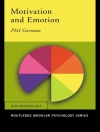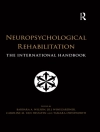Grounded in state-of-the-art research, this practical guide comprehensively shows how to harness the potential of direct behavior rating (DBR) as a tool for assessment, intervention, and communication in schools. DBR can be used rapidly and efficiently in Pre K-12 classrooms to support positive behavior and promote self-management. The authors and contributors provide concrete examples of ways to implement DBR strategies within multi-tiered systems of support (MTSS). The evidence base supporting each strategy is reviewed. More than 30 reproducible checklists and forms include step-by-step implementation blueprints, daily report cards, and more. Purchasers get access to a Web page where they can download and print the reproducible materials in a convenient 8 1/2′ x 11′ size.
विषयसूची
I. Foundations of Direct Behavior Rating 1. Conceptual Foundations of Direct Behavior Rating, Amy M. Briesch, Sandra M. Chafouleas, & T. Chris Riley-Tillman 2. Identifying and Selecting Behaviors for Use in DBR Items, Amy M. Briesch & Sandra M. Chafouleas 3. Using DBR to Communicate across Contexts, Sandra M. Chafouleas, Amy L. Reschly, Ruth Chaffee, & Amy M. Briesch II. DBR Applications: Assessment 4. Foundations of DBR in Assessment, Amy M. Briesch, T. Chris Riley-Tillman, & Sandra M. Chafouleas 5. Use of DBR in Progress Monitoring, Faith G. Miller, T. Chris Riley-Tillman, & Sandra M. Chafouleas 6. Use of DBR for Targeted Screening, Stephen P. Kilgus, Faith G. Miller, Austin H. Johnson, & Sandra M. Chafouleas 7. Considerations and Developments in DBR-Single-Item Scales Assessment Training, Austin H. Johnson, Nicholas J. Crovello, & Sandra M. Chafouleas III. DBR Applications: Intervention 8. Use of DBR in Targeted Intervention, Leanne S. Hawken, Kaitlyn Bundock, Gregory A. Fabiano, & Amy M. Briesch 9. Use of DBR in Individualized Intervention, Rose Iovanonne & Amy M. Briesch 10. Use of DBR in Self-Management Interventions, Amy M. Briesch & Sandra M. Chafouleas IV. DBR Communication: Linking Assessment and Intervention 11. Summarizing DBR Data for Interpretation and Decision Making, Austin H. Johnson, T. Chris Riley-Tillman, & Sandra M. Chafouleas 12. Use of Technology to Facilitate Assessment and Intervention, Stephen P. Kilgus, T. Chris Riley-Tillman, & Amy M. Briesch 13. Using DBR in a Comprehensive Problem-Solving Model, Amy M. Briesch, Sandra M. Chafouleas, & T. Chris Riley-Tillman
लेखक के बारे में
Amy M. Briesch, Ph D, is Associate Professor in the Department of Applied Psychology at Northeastern University. Her primary research interests include the role of student involvement in intervention design and implementation, and the development of feasible and psychometrically sound measures for the assessment of student behavior in multi-tiered systems of support. Dr. Briesch is Associate Editor of the Journal of School Psychology and a recipient of the Lightner Witmer Award for early-career scholarship in school psychology from Division 16 of the American Psychological Association. She has authored over 50 peer-reviewed journal articles, books, and book chapters. Sandra M. Chafouleas, Ph D, is Professor in the Department of Educational Psychology at the Neag School of Education, University of Connecticut. Her research focuses on school-based behavior assessment and intervention and school mental health. Dr. Chafouleas is a member of the Society for the Study of School Psychology and a Fellow of both the American Psychological Association and the Association for Psychological Science. She has authored over 150 articles, book chapters, and books. T. Chris Riley-Tillman, Ph D, is Professor and Associate Division Director in the Department of Educational, School, and Counseling Psychology at the University of Missouri. He is Associate Editor of School Psychology Quarterly and Assessment for Effective Intervention. His research interests include the development and validation of assessment and intervention methodologies, single-case design, and consultation. The author of five books and over 100 articles and book chapters, Dr. Riley-Tillman is a member of the Society for the Study of School Psychology and a Fellow of the American Psychological Association. He is editor of The Guilford Practical Intervention in the Schools Series.












